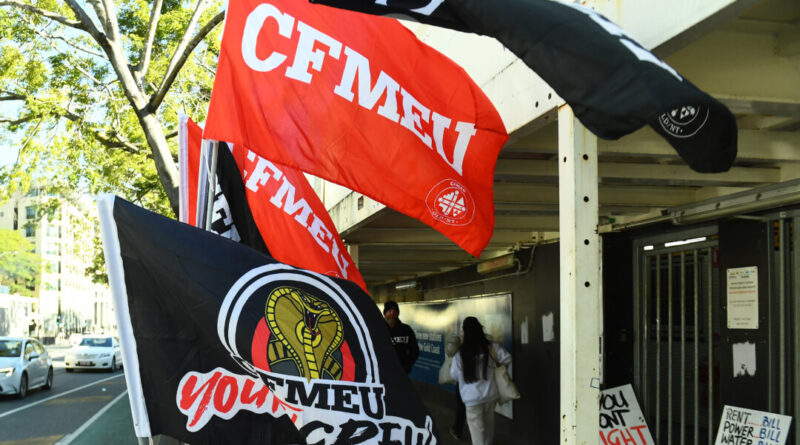Master Builders CEO Calls for Stronger Regulator in Response to CFMEU Bill
Denita Wawn also supported the revival of the ABCC but with stricter powers.
Following the agreement between Labor and the Coalition on a bill to administer the CFMEU, Denita Wawn, CEO of Master Builders Australia, emphasized that this is just the starting point.
During an interview with Canberra radio 2CC, Wawn mentioned their intention to push for a “larger, more effective regulator.”
She stated, “By the time the CFMEU exits administration, we should have laws in place to prevent these incidents from reoccurring. Four Royal Commissions have recommended it, and we will continue to advocate for it.”
Furthermore, Wawn backed the reinstatement of the Australian Building and Construction Commission (ABCC).
Although Leader of the Opposition Peter Dutton has introduced multiple private members’ bills to reintroduce the ABCC, the government believes that the ABCC lacks the necessary authority to regulate the system adequately.
Wawn expressed, “From our viewpoint, the ABCC was beneficial, but it fell short. The ABCC only oversaw industrial relations laws, but recent media reports have shown that the issues extend beyond that. This involves criminal activity and anti-competitive behavior.”
She also referenced the four Royal Commissions that highlighted the need for a specialized regulator with increased power.
She explained, “Interestingly, both the Government and the Coalition are correct. We need to blend their ideas to ensure we establish the specialized regulator that we truly need.”
The CFMEU administration bill, supported by Labor, mandates a minimum three-year administration for all construction union branches and imposes a permanent ban on criminal officials. This gained opposition backing after facing initial obstacles in the Senate.
The legislation empowers the minister to place the union’s construction and general division into administration, with the option to extend the period to five years based on the administrator’s recommendation.
The opposition’s support was secured by demanding a clear prohibition on donations and political activities during the administration, as well as requiring the administrator to testify before a Senate committee.
Wawn also touched on union membership within the building industry, noting that membership rates align with those in the broader private sector.
She stated, “Within the private sector, membership stands at around 8–10 percent. This is consistent with private sector union membership, indicating a low rate.”
Emphasizing the significance of compliance with the law and effective representation by all organizations, whether unions or employer associations, Wawn concluded, “We expect every organization, be it an employer or union, to adhere to the law, represent their members effectively, and work in the best interest of the industry we all serve.”





